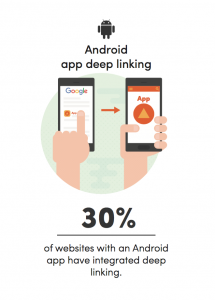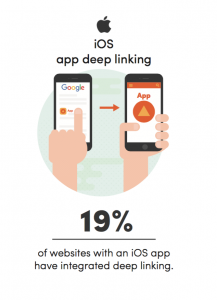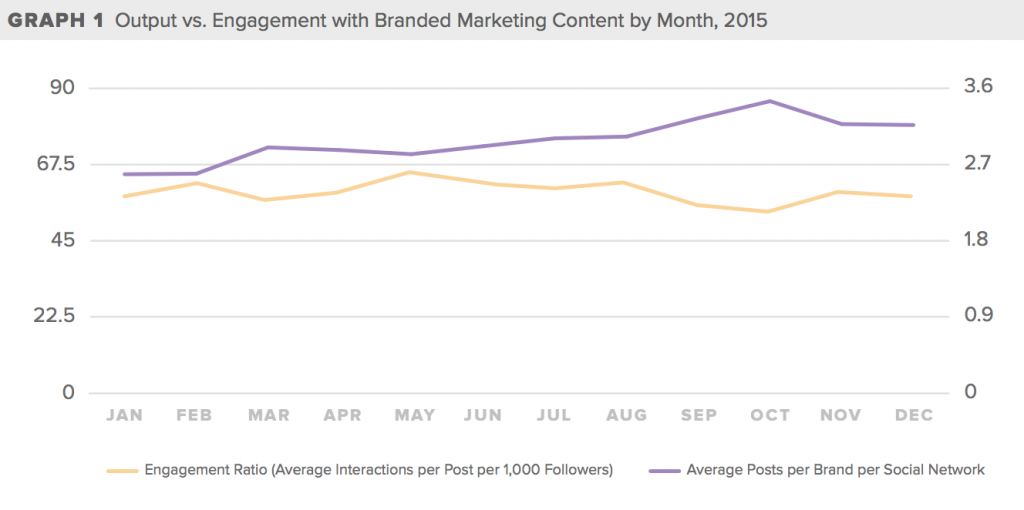Welcome to our weekly round-up of all the latest news and research from around the world of search marketing and beyond.
This week we have a ton of updates from Google, who just can’t take a week off apparently, and a few interesting studies on content marketing and mobile search.
Google has removed PageRank from public view
If you’ve been using a PageRank tool in your browser than I’m afraid I have some bad news. It’s probably already gone.
As confirmed by Google’s Webmaster Trends Analyst John Mueller, Google is removing PageRank from its Toolbar.
PageRank will still be used internally by Google, but as trends continue towards machine learning and user experience, it’s questionable for how long this particular ranking factor, that hasn’t been updated for years, will even be a thing.
Early results of Google killing Right Hand Side Ads
Kenshoo has published new research revealing some early results from Google’s recent removal of Right Hand Side Ads.
Among the key revelations from the first week the change happened:
- A one penny (or roughly 1%) decrease in CPC
- Average position improved by 0.2, moving ads closer to the top of the page on average
- Click-through rate (CTR) increased by one tenth of a percent, which represents a 7% increase over the previous week
- Week-over-week changes to click and spend volume were ultimately within normal weekly variance, with a small increase in clicks and a smaller increase in spending due to the drop in average CPC
Google is migrating its blogs
In a recent statement John Mueller announced that, “Google is moving its blogs to a new domain to help people recognize when they’re reading an official blog from Google.”
This basically means all the official Google blogs will be moving from blogspot.com to googleblog.com.
Mueller has assured that all redirects have been put in place, so your bookmarks and links will continue to work, however “as with a custom domain change in Blogger, the Google+ comments on the blogs have been reset.”
That last bit made me chuckle.
Google offers advice on building mobile-centric search strategy
In a Think With Google post this week, Lisa Gevelber has offered up loads of juicy stats and guidance on where to begin with mobile search, particularly for luxury brands.
Here’s a quick run-down:
- Mobile makes up 88% of all ‘near me’ searches, with those mobile searches growing at 146% year over year.
- For automobiles, the most popular mobile-centric searches are for luxury car price enquiries. For instance ‘Tesla price’, ‘Maserati price’ and ‘Audi R8 cost’. These grew nearly 90% on mobile from 2014 to 2015.
- For jewellery, the most popular mobile search is for ‘promise rings’. These related mobile searches grew by 77% from 2014 to 2015 and tended to spike around the holidays and Valentine’s Day.
- For hotels, data from Hotels.com states that 74% of mobile bookings are made for same-day check-in. The most popular mobile-centric hotel search themes include ‘near me’, ‘cheap’ and ‘price’.
Only 20% of iOS apps and 30% of Android apps support app indexing
Brands are missing out when it comes to enabling deep linking in their apps, which allows Google to crawl its content beyond the mobile web.
According to Searchmetrics, in a study of the 100 most visible websites in Google US searches, it’s been found that although 84% offer an Android App, only 30% of these had implemented app-indexing.
And then of the 88% that offer an iOS app, just 19% were found to be support app-indexing.
‘Peak content’ has been reached for brands
As Chris Lake reported this week, a recent TrackMaven report has looked at the content marketing activity of almost 23,000 brands and their 50m published pieces of content.
It turns out that the average brand publishes more than 2,000 pieces of content a year, and in 2015 this increased by 35% compared to the previous year.
But there is only so much content people can consume.
Although there were a total of 75.7bn interactions, the average engagement actually decreased by 17%.
The chart below shows the widening attention gap, based on the volume of shares on social platforms vs response rates.
For more detailed analysis, check out the report.
Four out of five people expect ‘online banking’ style government services
A new YouGov survey commissioned by CitizenSafe, has revealed 81% of British people expect to be able to access key government services easily and securely online.
These include filing tax returns, managing pensions, claiming redundancy pay or viewing and sharing driving licence details.
- 80% of respondents have already used online banking outside of usual ‘office’ hours and expect no less from government services
- 52% said that verifying their identity online anywhere and at any time was the most convenient option for them
- 61% of full-time workers and 64% of full-time students agreed that verifying their identity online was the most convenient option for them
The article Seven of the most interesting SEM news stories of the week was first seen from https://searchenginewatch.com




No comments:
Post a Comment